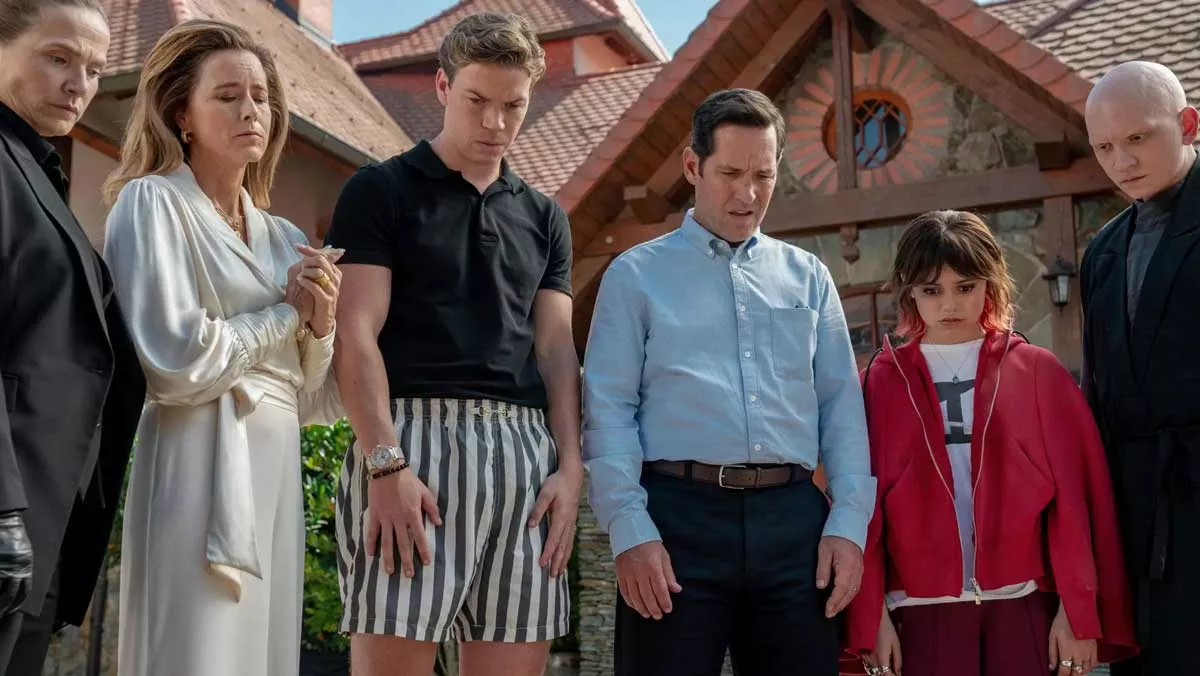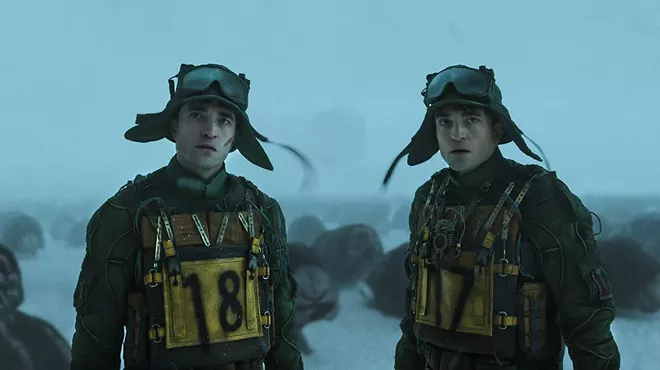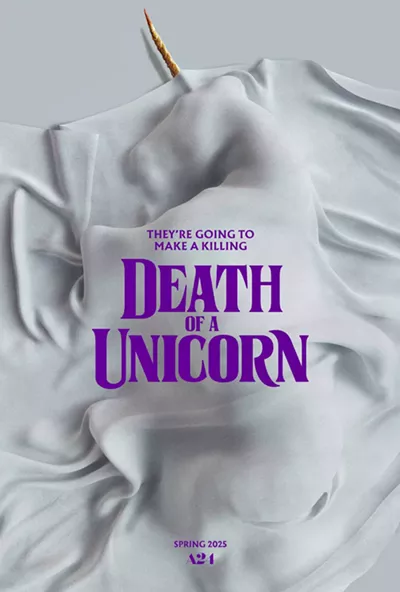How smart does a satire really need to be? This has been on my mind since the release of Bong Joon-ho’s fun but flawed Mickey 17 when I realized that if an explosive filled with ideas is dropped on America, maybe there’s no room for subtlety anymore, especially if it needs to land on as many people as possible.
Long gone are the days when movies of fierce, raging anger and intelligence like Network and Dr. Strangelove connect with general audiences outside of critics and cinephiles. The last few genuinely brilliant satires like The Death of Stalin, In the Loop, and Sorry to Bother You were hardly seen by audiences in the United States.
Death of a Unicorn makes Mickey 17 look like a masterclass of subtlety in comparison, instead leaning into an “eat the rich” narrative filled with such cartoonishly evil billionaires and endless jokes without punchlines that we’re not given room to provoke our own thoughts out of the predictable and pedestrian story. Instead, we’re left with a decent, if schlocky monster movie that thinks it’s much smarter than it really is (which, hilariously, is more satirical of our modern times than the movie itself).
Paul Rudd and Jenna Ortega are a strained father and daughter headed to a nature preserve/massive estate of the odious Odell Leopold (the always great Richard E. Grant) and his ruthless wife, Belinda (a never funnier Téa Leoni) and his profoundly stupid yet confident son, Shepard (a movie-stealing Will Poulter). They’re a family of billionaires who’ve made their fortune from pharmaceuticals (among other things) and are vetting the middle-class lawyer Rudd to see if they want him on board as a full-time conservator.
On the way, Rudd hits a baby unicorn with his rental, bludgeons it to death (for mercy?), and shoves it in the backseat, hoping to bring no attention to the dead mythological creature in his car before he signs a contract and sets himself and his daughter up for life. Long story short: baby unicorn isn’t dead. Evil billionaires want to harvest it for its healing properties and the giant, monstrous mom and dad unicorns want their baby back and go on a bloody killing spree to get the li’l one.
What we have here is equal parts Jurassic Park (without the wonder or tension) and Parasite (without the subtle intelligence or sly humor) mixed with a father-daughter dramedy that tonally has no idea which way to bend, so it ends up being fairly generic even with such an original premise. It doesn’t work well enough at any of the different sub-genres to be very memorable, even though it’s fitfully entertaining on first viewing and only a glob of wasted potential in retrospect.
The film periodically shines as a gory monster movie with clueless idiots getting impaled by unicorn horns (UnicHorns?) and the soulless billionaires having their intestines pulled out by magical creatures. But because the characters are such thinly sketched caricatures of people, we’re never given much reason to care about their violently entertaining fates. None of this is the fault of the cast, who are uniformly excellent, even though a slightly miscast Rudd is so inherently likable that it’s hard to buy him as a weaselly dweeb.
The fault lies squarely with writer-director Alex Sharfman who, while having an original premise and very game cast, doesn’t nail the humor sprinkled throughout the script and directs artlessly, without tension, momentum, or grace. This should have been an immediate cult classic along the lines of Sorry to Bother You or Get Out, but will be forgettable to most as soon as the credits roll. Sharfman has potential, but Death of a Unicorn is hobbled by many rookie filmmaker mistakes.
Satire can still be broad and “dumb” while being hilarious and thought-provoking. The movies Idiocracy, Team America, Tropic Thunder, and They Live are goofy as hell while all having something intelligent and immediate to say. Even so, most people can watch those movies and laugh their asses off without having to delve into the serious themes and ideas buried beneath the explosions and fart jokes. Levels are nice.
So, to answer my question from the top… satires should, at the very least, make us examine the current state of our world through the warped lens of artists with something of import to say. Unintelligence can be brilliant and prestige can be ridiculous if examined by filmmakers with a vision and desire to shape ideas in others. Those who can recognize subtlety in movies still deserve it even if folks who don’t miss the point completely.
We should raise our hackles against the dumbing down of the United States before intelligence, empathy, and logic become the true mythological creatures.
Grade C-




